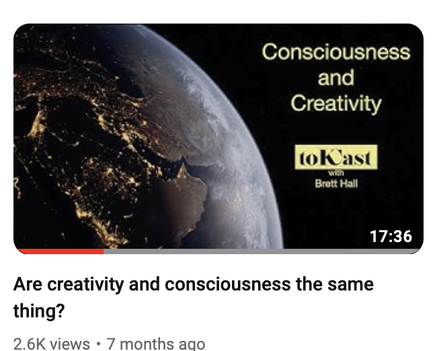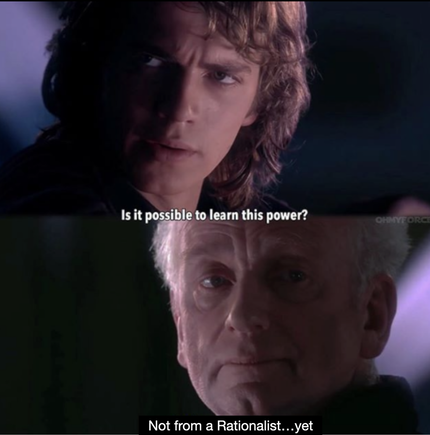|
Abstract: We still do not know if animals have "consciousness" because we just do not know what consciousness is yet. We can ascribe it to other people because they can explain they have it as I explain below in "Consciousness and Creativity". Animals close to us socially (cats, dogs (especially) and farm animals (such as cows, pigs, etc) and great apes and even monkeys which is to say largely those animals that have coevolved with humans in one sense or another display individual preferences (and hence “personalities). But those preferences are all due to genetic variation alone and so lead solely to entirely inborn behaviours or recombinations of inborn behaviours ("behaviour parsing". I.e: they’re due entirely to genetic *variation* (especially in dogs). This may indicate the presence of a kind of "mind" software running on the brains of those animals but in any case this "mind" is of an altogether qualitatively different kind to the mind of a person able to in principle universally explain the worlds both actual ad possible; physical and imagined. Introduction Whether the existence of a rudimentary "mind" in dog or chimpanzee brains confers the experience of anything at all (qualia or consciousness) on them is *unknown*. Hence whether they experience pain as we do is unknown. But whether it gives them the capacity to explain anything is known. They cannot. so they cannot suffer - which is “pain” but with the capacity to explain it (even inexplicitly). And because we do not know what consciousness is, we cannot know if animals suffer. Let me explain! On the distinction between pain and suffering Suffering and pain are not the same thing. Pain comes in many forms: physical (stress and distress) and mental (anguish). Physical distress is what most people think of when they think of pain. That's the sort associated with injuries: broken bones, cuts, burns, surgery recovery, headache, stomach ache and far worse. We all know some of this with some of us unfortunate enough to experience the worst of it. Living long enough the sad truth is many of us will experience some of the worst of it and we will beg for the soothing salves of modern pharmacological pain relief in the form of everything from mild analgesics through to the most powerful opiates science (in the form of highly expensive to do and carefully managed pharmaceutical research) has struggled to develop and refine. Thank God - or rather capitalism and science for that! Then there is the pain that is merely a consequence of stress but not distress. This difference makes all the difference in the mind of a person. I have pain working out. Actual athletes no doubt have even more. But are we in distress? Ok, so some in Olympic Marathons might be. But in general, no. We enjoy training. I might feel "pain" when working out or running but I am also listening to my favourite upbeat music and I can reinterpret the pain signals as an indication to do more, go heavier, go faster and it actually begins to feel just a bit pleasurable. There's a fine line between pleasure and pain, as The Divynals sang: "It's a fine line between pleasure and pain You've done it once, you could do it again Whatever you done, don't try to explain It's a fine, fine line between pleasure and pain / Why do you push? Why do you push? / Break my body with the back of your hand Doesn't make sense from where I stand / Please don't ask me How I've been getting off Ha, no, please don't ask me How I've been getting off / Pleasure and pain (It's all the same) You've done it once, you could do it again (It's all the same) Whatever you done, don't try to explain (It's all the same) It's a fine, fine line between pleasure and pain" But only for people, right? Not animals. They (perhaps!) experience pain. They cannot tell us. We cannot rule out Descartes' argument that they might just be like a plucked violin. They make all the sounds as if they have emotion, but do they? Is it just a mindless automaton response that elicits in other animals mindless responses? But why? Well why anything in evolution? Survival? Why survival? Why life? Like Agent Smith interrogating Neo in The Matrix. Smith is not supposed to be "human" - he is supposed to lack empathy - perhaps even emotion. He is not a real person. He is the trope of "artificial intelligence" - a form of existence I do not think is physically possible (for one thing Smith gets increasingly angry in the following exchange which adds to the drama but undermines the philosophy). But let us put that aside for now lest I get sidetracked. Angent Smith says in one scene of "Matrix: Revolutions" Why, Mr. Anderson? Why, why? Why do you do it? Why, why get up? Why keep fighting? Do you believe you're fighting... for something? For more than your survival? Can you tell me what it is? Do you even know? Is it freedom? Or truth? Perhaps peace? Could it be for love? Illusions, Mr. Anderson. Vagaries of perception. Temporary constructs of a feeble human intellect trying desperately to justify an existence that is without meaning or purpose. And all of them as artificial as the Matrix itself, although... only a human mind could invent something as insipid as love. You must be able to see it, Mr. Anderson. You must know it by now. You can't win. It's pointless to keep fighting. Why, Mr. Anderson?! Why?!! Why do you persist?!!! Neo : Because I choose to. People are unique in physical reality So people are a qualitative step above, beyond and on a different staircase altogether compared with what other animals are and the Matrix is confused at times with respect to providing a coherent philosophical perspective nonetheless it asks some of the right questions. By "people" I mean our erstwhile ancestors and ancient cousins bipedal hominid cousins who likewise had this capacity, extraterrestrial intelligence that must and Artificial General Intelligence (AGI) which will. The observation that other animals also vie for survival on a finite planet does not indicate the existence of qualia in what might be mindless biological robots for all we know. Survival alone isn't an explanation. And animals don't know why they want to survive. Even we cannot say why animals seem to desire to survive. But we can explain why we do. We explain that we choose to, as Neo says above. This makes all the difference. Smith apparently has no choice. So he doesn't understand this. On this, the script writers were correct. If Smith is a "mindless" suoerintelligence he does not understand choice. But we do. He must just do what he is doing - destroy the Matrix. He has a purpose. The purpose does not change. He is turning the world into paperclips and cannot reflect on why. But he can only not reflect on that very purpose. ON everything else, he seems to have a general capacity to reflect. This is a paradox unresolved in AI doomer circles. In any case, pain, for us, is a different kind of thing as compared to what other animals "experience" if they experience anything at all when a bodypart of theirs is damaged. Our pain, the pain of people, comes with an explanation. If it's the good kind from working out, when we are not in distress, even if the physical sensation is the same for a heavily worked out muscle as for a strained one we can interpret the former as fine, even pleasurable while the latter evokes suffering. Suffering is pain with an explanation (of why it is bad). Animals cannot explain anything ergo, they cannot suffer - in the way I have explained what suffering is - which is the way I think that matters. People understand the possibility of the future and pain, that we regard as bad, we expect to continue into the future causes us suffering. Grief over a lost person, concern about losing someone, how a recently broken bone will hurt for days or weeks yet to come and cause us to be immobilised. Some do say it is possible to learn this power - but I admit I have not myself, yet. So far I have said little different to anything else I have said on the topic here. But let me add some things I have not previously or failed to emphasise or simply expressed poorly. And that is the following: Cats and Dogs have preferences and personalities. But why? Cats, dogs (especially) - cows and horses perhaps (i.e: especially animals that have coevolved with humans) or animals that most closely resemble humans in terms of hardware (nervous systems) and software (the code that controls their behaviour) - in other words all great apes, but also monkeys do have rather (and more or less) individual preferences (and hence “personalities") but they’re all inborn or recombinations of inborn behaviours. They "behaviour parse". See the work of Richard Byrne on this: https://pages.ucsd.edu/~johnson/COGS260/Byrne2003.pdf or the index of "The Beginning of Infinity" by David Deutsch for a more refined and succinct explanation of Byrnes work on this. Who is all just to say: yes! Those differences in personality are due entirely to genetic *variation* (including, notably, in dogs). This gives a strong illusion of being "human like" - but only in comparison to animals that do not show so much variation. I am thinking the trope of literal sheep who are supposed to all behave alike. Although shepards no doubt disagree. Carefully edited documentaries of things like meerkats and kangaroos give a false (overly strong) impression of personalities where there are none. Or at least the variation is minimal. Or take it more simple still - rodent like mice. Or starlings. Or fish. Let alone mosquitos. The genetic variation causing behavioural differences is minor meaning their preferences are due entirely to minor differences in their DNA. With dogs genetic variation between breeds is large so we expect the genetic variation in behaviour (i.e: "personalities") to be large too. And these creatures can behaviour parse in very different ways. Do animals suffer? Can we avoid suffering as it includes the worst qualia people can experience. So, do animals suffer? Perhaps. They experience pain is my guess and close to that of humans - but they do not suffer. Pain is just a kind of first blush "detection" of damage utilising circuitry the evolved in our ancient ancestors. But other animals today do not suffer. This pain experience they have, if experience it is, does not lead them to an appreciation that this experience (for example) means the end is near. Although they do seem to mourn death at times as dogs, elephants, whales and gorillas do. They do seem in pain or sad. That demands an explanation. Maybe they can explain some very limited things inexplicitly. But they are not universal and so their suffering, if it exists at all, is, thankfully, bounded. Small mercies. Maybe they already have a kind of native enlightenment without effort. I've often thought that having seen some pets near the end of their lives, in some pain, but going quiet, as if they have accepted it. Our suffering is not "natively so enlightened in that way - even if some are "enlightened" like James Pierce here: https://www.james-pierce.com/writings/the-experience-of-enlightenment and on suffering James says: To which I responded, having made a similar point just a few weeks earlier: Conclusions to my new editorial on animal suffering
So, I do not think animals can suffer though they may experience pain. But if they can suffer, their suffering is bounded and in any case we are not condemned to suffering. We can learn to experience the world better because we are universal explainers. Animals are not - even the more "sophisticated" ones. In animals - especially those close to people (both genetically like apes and close socially like dogs and cats) display great genetic variation and the existence of literal memes. This implies something like a mind, but nothing like our mind. Moreover this does not necessarily confer upon them qualia or consciousness. It may but that is, for now, *unknown*. Hence whether they experience pain *as we do* is unknown. But whether it gives them the capacity to explain anything is known. They cannot. so they cannot suffer - which is “pain” but with the capacity to explain it (even inexplicitly). Which is all to say: I still do not know as I admitted here: https://www.bretthall.org/humans-and-other-animals.html But I wish to make clear, what I said there by emphasising these very real possibilities as outlined in my abstract above.
0 Comments
Leave a Reply. |
Archives
December 2023
CriticismThe most valuable thing you can offer to an idea Categories |





 RSS Feed
RSS Feed